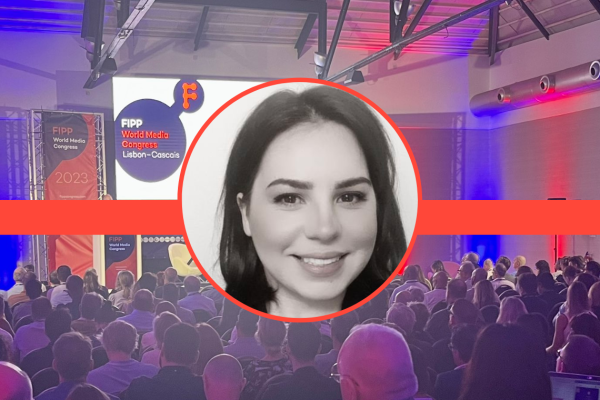Ruwayda Mustafah of Rudaw Media Network reveals how the company is battling misinformation in Iraq
Over the last 10 years, Rudaw Media Network has completely changed the media landscape in Iraq’s Kurdistan region. In a country where misinformation is rife, the group has drawn in scores of viewers, and millions of engagements across social media channels, thanks to its quality, well researched shows.
Joining podcaster and Di5rupt interviewer Charlotte Ricca at the FIPP World Media Congress, Ruwayda Mustafah, Public Relations Manager of Rudaw Media Network, explained why it is so difficult to trust the news in Iraq.
“Misinformation is a global problem, but compared to other countries, Iraq has a weak news ecosystem in that you’ve got multiple news platforms that are funded by different politicians, political parties or even different countries in the region to meddle into their internal affairs,” she said.
“At Rudaw we face one of the greatest challenges, which is trying to decipher between what is truthful news and what is fake news and at the same time, trying to stay on top of our agenda in terms of always being the first to break news.”
Rudaw Media Network challenges misinformation across different departments at the company. When it comes to health, for instance, there is flagship show fronted by a respected doctor who refutes commonly held myths related to health.
“We basically have four to five shows that are well researched, well investigated and well sourced to ensure that the public are having a good amount of information,” said Mustafah.
“We are also challenging misinformation by using traditional media like TV and radio. People used to think that traditional media will die out, but on the contrary, more people are coming back to traditional media because they’re seeing all of these different Facebook pages, different social media pages pop up, and that’s where we maintain our strength.”
Changing the game
Rudaw Media Network is unique in that it is the only media platform in the region that sends journalists to get trained in the US, UK and European countries like Germany.
The company has also increased the minimum wage for journalists in the region, set up workshops and have partnered with the likes of Google.
“We’ve tried to change the landscape by partnerships – not necessarily trying to imitate other news organisations in the West, but we’ve wanted to partner with them on the same level so that we can develop something in the region that’s wholesome and progressive,” said Mustafah.
“We don’t focus on engagement as much as other networks. We focus on the quality of our writing and the quality of our reports, so you’ll find that we may not have hundreds of programmes, but the ones we have are high quality.
“And I think the way we’ve retained our audience is that we’ve been consistent in our messaging. We are the only platform that actually covers news related to all politicians, while other media outlets tend to be a mouthpiece for one.”
The scourge of deep fakes
According to Mustafah, deep fake videos and audio snippets are a particular problem in Kurdistan and Iraq since people don’t understand what they are, and there is no mechanism for them to identify whether what they are seeing and hearing is truthful.
“The main problem with deep fakes is the inability to identify it and inability to have proper scrutiny,” she pointed out. “Media professionals are not trained to identify deep fakes and to date no one in the region has any oversight over what content is published and there is no independent body, the same way the UK does, to fact check information that’s shared.”
While new technology poses a problem, it can also offer a solution. “At the same time that we have technology that can manipulate voices and videos, we also have technology that can identify deep fakes,” said Mustafah. “It’s strange because it’s almost like AI is in a fight with itself.
“But there are basically programmes that can enable you to identify deep fake audios and video because they measure the tone.”
Rudaw Media Network has also been inspired by the fact that the BBC has established a verification department.
“We’re keen to reach out to them to see whether we can collaborate,” said Mustafah. “We are also interested in having our own verification department where we can look at viral content and determine whether it’s fake or real and then share with our readers.
“Deep fakes, misinformation and disinformation are a growing concern for us because we have a huge audience and we owe it to them to be to truthful and we owe it to them to be as thorough as possible.”











